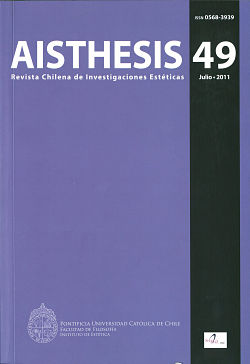Non-fiction literature in Rodolfo Walsh: politicization of art and historical experience
Main Article Content
Abstract
The works of Rodolfo Walsh are marked by a strong connection between an aesthetic and a political practice. In this work we propose to engage in the constellation of nonfi ction texts written by the author in the 60s and 70s period. These texts pursue a conception of art as bearer of a certain «danger» that is anchored to its enormous power to embody an intervention in historical and social reality. We analyze the way in which certain elements relate to each other: the criticism of a sacralization of bourgeois art, the strategies of writing (the montage), and the will to contribute to the reconstruction of a social memory that explains the historical experience of the working classes (their state of emergency, the political violence).
Downloads
Article Details

This work is licensed under a Creative Commons Attribution-NonCommercial-ShareAlike 4.0 International License.
All contents of this electronic edition are distributed under the Creative Commons license of "Attribución-shareAlike 4.0 Internacional" (CC-BY-SA). Any total or partial reproduction of the material must mention its origin.
The rights of academic works published in this publication belong to their authors., who grant to AISTHESIS: Revista Chilena de Investigaciones Estéticas the license for its use. The management of the permits and the authorization of the publication of the images (or of any material) that contains copyright and its consequent rights of reproduction in this publication is the sole responsibility of the authors of the articles
